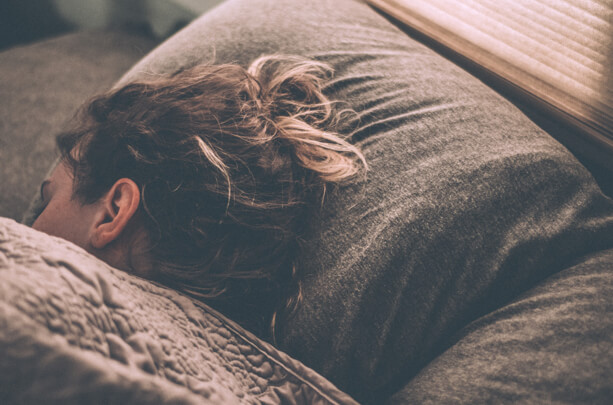When the world seems to be falling apart, it can be hard to relax. You might find yourself constantly going over what could or will happen, or maybe even running through the past and trying to figure out how you messed up so much in the first place.
Unplug The Gadgets 30 Minutes Before Bed
It’s no secret that stress can take a toll on your sleep. If you’re finding it hard to catch some zzz’s, unplugging from your gadgets may help.
According to a recent study, spending time on devices like phones and laptops before bed can make it harder to fall asleep. The blue light emitted from screens can disrupt your body’s natural sleep cycle.
So, if you’re looking to improve your sleep, try disconnecting from your gadgets at least 30 minutes before bedtime. You can use this time to read, meditate, or do something else that relaxes you. You may find that you sleep better when you disconnect from technology before hitting the hay.
Get Enough Exercise
1. Get Enough Exercise
Exercise is one of the best things you can do for your sleep. It helps to improve the quality of your sleep and can also help to reduce stress levels. If you are struggling to sleep, aim for at least 30 minutes of exercise per day. This can be anything from going for a walk to doing a full workout at the gym.
2. Create A Relaxing Bedtime Routine
Creating a relaxing bedtime routine can help you to wind down at the end of the day and prepare for a good night’s sleep. Try to avoid watching television or working on your laptop in bed. Instead, try reading a book or taking a relaxing bath before bed.
3. Make Your Bedroom Comfortable
Making your bedroom comfortable can also help you to sleep better. Make sure that your bedroom is dark, quiet, and cool. Invest in a comfortable mattress and pillows that will support your body while you sleep.
following these tips can help you to improve your sleep in stressful times. Exercise, relaxation, and comfort are all important factors in getting a good night’s rest.
Creating A Better Sleep Environment
One of the best things you can do to improve your sleep during stressful times is to create a better sleep environment. This means making sure your bedroom is dark, quiet, and cool. You should also avoid using electronic devices in bed. Creating a calm and relaxing environment will help you fall asleep more easily and get a better night’s sleep.
Another way to improve your sleep during stressful times is to establish a regular sleep schedule. Going to bed and waking up at the same time each day will help regulate your body’s sleep-wake cycle. This will make it easier for you to fall asleep and stay asleep throughout the night.
Finally, make sure you are getting enough exercise during the day. Exercise can help improve your sleep by reducing stress and promoting relaxation. Just make sure you don’t exercise too close to bedtime as this can make it harder to fall asleep.
Give Yourself A Nap
1. Give Yourself A Nap: In times of stress, it can be difficult to get a full night’s sleep. If you find yourself struggling to sleep, try taking a nap during the day. Even a short 20-minute nap can help you feel more rested and less stressed.
2. Establish A Regular Sleep Schedule: When you’re under a lot of stress, it can be tempting to stay up late and sleep in. However, this can actually make it harder to fall asleep at night. Instead, try to establish a regular sleep schedule. Go to bed and wake up at the same time each day, even on weekends. This will help your body get into a rhythm and make it easier to fall asleep at night.
3. Create A Relaxing Bedtime Routine: A relaxing bedtime routine can help you wind down and prepare for sleep. Try taking a warm bath or reading a book before bed. Avoid using screens (including phones, laptops, and TVs) before bed, as the blue light can make it harder to fall asleep.
4. Get Some Exercise: Exercise can help improve your sleep quality by reducing stress levels and promoting relaxation. However, avoid exercising too close to bedtime
Sleep In Complete Darkness
If you want to improve your sleep in times of stress, one of the best things you can do is sleep in complete darkness. This means shutting off all lights in your bedroom and avoiding any bright screens (including phones, laptops, and TVs) for at least an hour before bed.
Darkness helps signal to your body that it’s time to sleep, and it also reduces distractions that can keep you awake. If you need to use a light to get around your bedroom, try using a small nightlight or wearing a soft eye mask.
In addition to sleeping in darkness, you should also aim to keep your bedroom cool and comfortable. A cool room temperature can help you fall asleep more quickly and stay asleep throughout the night. So if you find yourself tossing and turning, try adjusting the thermostat before reaching for another pillow.
Drink Chamomile Tea And Avoid Caffeine In Late Evening/Night
1. Chamomile tea is a great way to relax before bed and avoid caffeine in the evening or night. Caffeine can cause insomnia and make it difficult to fall asleep. Chamomile tea is a natural relaxant that can help you drift off to sleep more easily.
2. It’s important to create a peaceful environment in your bedroom that promotes relaxation and sleep. This means turning off electronics screens at least 30 minutes before bed, dimming the lights, and making sure your bed is comfortable. Creating a regular bedtime routine can also help signal to your body that it’s time to wind down for the night.
3. Stress can be a major contributor to insomnia and sleeplessness. If you’re feeling stressed, try some relaxation techniques such as deep breathing or progressive muscle relaxation. You can also try guided meditation or yoga to help calm your mind and body.
Avoid Sugar, Alcohol, And Strong Iced Teas
It’s no secret that sugar, alcohol, and caffeinated beverages can wreak havoc on your sleep. But when you’re under a lot of stress, these drinks can be even more disruptive. That’s because they can cause your body to produce more adrenaline, which can make it harder to fall asleep and stay asleep. So if you’re looking to improve your sleep during times of extreme stress, it’s best to avoid these drinks altogether.
Remember To Use Your Alarm Clock At The Same Time Every Night
Using an alarm clock can help you to keep a regular sleep schedule. This is especially important during times of stress, when it can be difficult to get a good night’s sleep.
When you use an alarm clock, set it for the same time each night. This will help your body to get used to a regular sleep schedule. It is also important to turn off all electronics at least 30 minutes before you go to bed. This includes phones, laptops, and televisions. The light from these devices can interfere with your body’s natural sleep cycle.
Try to create a relaxing bedtime routine that you can do each night. This might include reading a book or taking a bath. Having a routine will help your body to relax and prepare for sleep.
Make sure that your bedroom is dark, quiet, and cool. These conditions are ideal for sleeping. If you can’t control the noise in your environment, try using a white noise machine or earplugs to block out sound.
Finally, avoid caffeine and alcohol before bed. Both of these substances can interfere with sleep. If you need to drink caffeine during the day, do so earlier in the day so that it doesn’t affect your sleep at night.
Do Some Yoga First Thing In Morning
Yoga is a great way to start your day and help improve your sleep. There are many different yoga poses that can help relax your body and mind. Some of the best poses for improving sleep include child’s pose, cat-cow pose, and corpse pose.
Child’s pose is a goodpose for relaxation and can be done by anyone, regardless of experience level. To do child’s pose, start on your hands and knees with your back straight. Then, slowly lower your butt down to your heels and stretch your arms out in front of you. Hold this pose for 30 seconds to 1 minute.
Cat-cow pose is another good one for relaxation and can also be done by anyone, regardless of experience level. To do cat-cow pose, start on your hands and knees with your back straight. As you inhale, arch your spine up towards the ceiling and look up. Then, as you exhale, round your spine down towards the floor and tuck your chin to your chest. Repeat this sequence 10 times.
Corpse pose is the perfect final pose for relaxation. To do corpse pose, lie down on your back with your legs and arms outstretched.
Get Out Of Bed As
1. Get out of bed as soon as you wake up. Do not lie in bed awake for more than 20 minutes. If you can’t fall asleep, get out of bed and do something calming until you feel sleepy again.
2. Make sure your bedroom is dark, cool, and quiet. This environment is conducive to sleep.
3. Establish a regular sleep schedule and stick to it as much as possible. Go to bed and wake up at the same time every day, even on weekends.
4. Avoid caffeine and alcohol before bed. Both of these substances can interfere with sleep.
5. Avoid working or using electronic devices in bed. The blue light emitted by these devices can disrupt sleep.
6. Exercise regularly. Physical activity can help improve sleep quality.
7. Practice relaxation techniques such as deep breathing or meditation before bedtime. These techniques can help reduce stress and promote sleepiness




